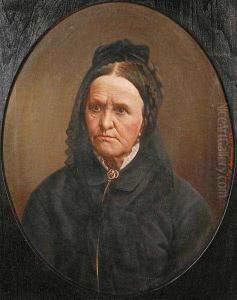Vaclav J. Mysliveeek Paintings
Vaclav Jan Kopriva, who later Italianized his name to Václav Jan Křtitel Tomáš Mysliveček, was a Czech composer who contributed significantly to the development of late 18th-century music. Born on March 9, 1737, in Prague, then part of the Habsburg Monarchy, Mysliveček grew up in a period where musical culture was thriving in the Bohemian lands.
Mysliveček's early musical education is not well documented, but he likely received his first lessons from his father, who was a miller but also a skilled musician. Later, he was educated in the Piarist Gymnasium in Kosmonosy, where he continued his musical training. He initially pursued a career outside of music and became a master miller like his father. However, his passion for music prevailed, and around the age of 26, he decided to devote himself fully to a career in music.
Mysliveček moved to Italy in the early 1760s, where he studied counterpoint and composition under Giovanni Battista Pescetti. He quickly assimilated the Italian style and began composing operas. His first opera, 'Semiramide', was performed in Bergamo in 1765 and was well received, marking the start of his successful career as an opera seria composer. Throughout the 1760s and 1770s, Mysliveček composed a number of operas that were performed across Italy, and he earned the nickname 'Il Boemo' (The Bohemian) due to his origins.
Apart from operas, Mysliveček also composed a variety of instrumental music, including symphonies, concertos, and chamber works, which were influenced by the galant style of the time. His works were praised for their melodic invention and clear structure. Mysliveček was also known for his friendship with Wolfgang Amadeus Mozart and his father, Leopold Mozart, during their first Italian journey. The Mozarts thought highly of Mysliveček's music, and the young Wolfgang was influenced by his style.
Unfortunately, Mysliveček's life took a turn for the worse in his later years. He struggled with financial difficulties and health problems, including a disfiguring infection of the nose. His popularity as a composer waned, and he died in poverty in Rome on February 4, 1781. Despite his tragic end, Mysliveček's music continued to be performed after his death, and today he is recognized as an important figure in the transition from the Baroque to the Classical period in music.
